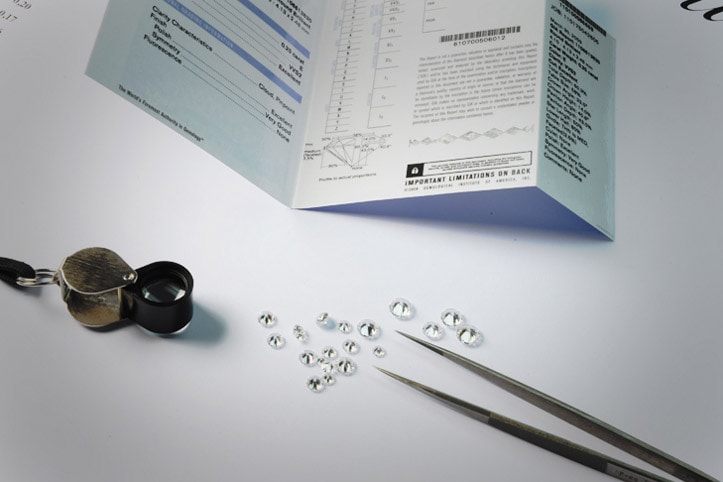DIAMONDS

Cartier is a world-renowned jeweller, yet accounts for only a minor share of the world's diamond consumption. In fact, the vast majority of jewellery products carry no brand name. We have nonetheless chosen to take a leading role in advancing exemplary ethical conduct. It is a natural choice, considering Cartier's reputation as well as our commitment to excellence.
Consequently, the fight against conflict diamonds is a major priority of our Corporate Responsibility policy.
CONFLICT DIAMONDS
The United Nations defines conflict diamonds as “diamonds that originate from areas controlled by forces or factions opposed to legitimate and internationally recognised governments, and are used to fund military action in opposition to those governments, or in contravention with the decisions of the Security Council.”
The term originated in the 1990s during the conflicts that ravaged a number of African nations including Sierra Leone, Liberia and Angola, among others. These conflicts have brought about a powerful mobilisation under the aegis of the UN. Diamond-producing states, countries that import and export diamonds, diamond industry representatives and NGOs (Non-Governmental Organisations) have combined their efforts to help restore peace in the conflict zones.
The common objective is to guarantee economic stability and development for these nations, particularly those in Southern Africa, for which legitimate rough diamond trade is vitally important.
KIMBERLEY PROCESS
The Kimberley Process was initiated in the year 2000 through the joint efforts of the UN, diamond-producing states, diamond industry representatives and NGOs. The objective: to ensure that no “conflict diamonds” enter the world market. As of September 2007, the Kimberley Process counts 54 participants representing 81 governments (the European Union and its Member States are counted as a single participant), and thus encompasses the vast majority of stakeholders in the production and trade of rough diamonds.
The Kimberley Process has established a certification system which has been in effect since 1 January, 2003. Rough diamonds must be exported in sealed containers with numbered, government-issued certificates of origin. Inspections occur regularly. A country found to be non-compliant may be sanctioned and barred from the trade. Results in 2006: approximately 99% of rough diamonds in circulation were certified as coming from conflict-free sources.

VOLUNTARY SYSTEM OF WARRANTIES
Applying to polished diamonds, i.e. once they have been cut, the System of Warranties is complementary to the Kimberley Process. The whole diamond industry has pledged its support to end the sale of conflict diamonds with additional measures applying to diamond and jewellery manufacturing and sales. Every seller of cut diamonds issues a Statement of Warranty that is passed on each time the diamond changes hands. This statement attests that the diamond is conflict-free and appears on all invoices submitted throughout the diamond's journey.
CARTIER
At Cartier, we have subjected all our diamond purchases to the System of Warranties since the scheme was introduced in January 2003. We require a Statement of Warranty for every diamond-related invoice we receive.
As outlined in our Corporate Responsibility policy, our commitments extend beyond the scope of diamonds. They apply to all our product lines and cover three areas – ethical, social and environmental.
To learn more about the diamond industry, we encourage you to visit www.diamondfacts.org. This site was created at the initiative of the World Diamond Council, an international organisation committed to eradicating the trade of diamonds that come from conflict zones or otherwise compromise human rights.
Cartier engages in long-term relationships with suppliers who share our values. We work with our suppliers on a daily basis to help them respect and uphold the commitments of our Maison.